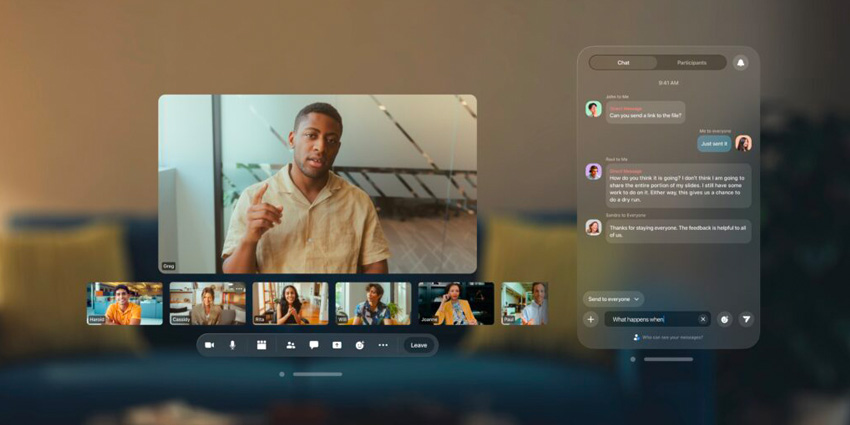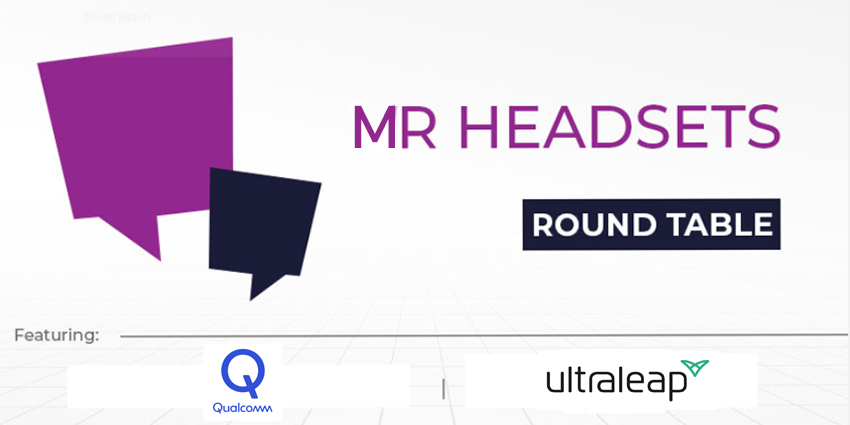Connect is the news of the month. As September moves along, Meta is prepping its immersive product portfolio for a refresh showcase during the event later this month.
Meta is moving towards MR headsets instead of purely VR devices. This year saw massive interest in MR headsets following Apple’s Vision Pro debut, and Meta looks to own the space following its experience with MR via its Pro headset.
The XR marketplace could experience shockwaves when Apple debuts its headset. However, Meta and Apple are not the only players in the XR market, and the space may look very different this time next year.
As showcase events like those delivered by Meta and Apple bring more eyes to XR technology, the power of immersive technology is spread to enterprise auidences.
Notably, as 2024 comes, firms like Microsoft and Apple are working towards enterprise and industrial-facing XR solutions.
Big News from Meta, ahead of Connect 2023
Meta Connect, September 27 – 28, 2023, a virtual XR showcase for users to watch via Facebook and Horizon Worlds, is coming up quickly.
Meta will provide attendees with an in-depth look at upcoming Meta XR products, Horizon Worlds’ metaverse developments, emerging AI innovations, and hands-on opportunities for the company’s forthcoming immersive product portfolio – including the Quest portfolio, Ray-Ban Stories, Avatars, and Horizon Worlds.
Leading up to the event, the firm is working on various projects in the background in preparation to take the XR world by storm, following ups and downs for the firm in recent months.
Meta recently released its Quest v57 update, which notably introduces legs to Quest Home environments.
Meta famously introduced legs as Horizon Worlds feature last year. However, Meta took some time to introduce the feature, presumably putting its efforts towards debuting the Quest 3, ready for Connect 2023.
The update allows Quest operators to see their avatar legs in the third person, such as looking in a mirror in the Quest Home environment. However, users are noting that the legs do not support couching or sitting, causing some disorientation.
The v57 SDK update is only available via Meta’s Public Testing Channel – so it is not ready for general release, and third-party developers can’t include legs into Quest applications yet. Moreover, Meta may enhance the feature following Connect 2023.
Moreover, Meta partnered with LG Electronics to develop a follow-up to its Quest Pro model.
The reportedly named “Meta Quest 4 Pro” will cost roughly $2,000, and thanks to the LG partnership, Meta will leverage LG’s microLED and microOLED microdisplay technologies in a bid to separate its products from an increasingly competitive market.
Also, LG Electronics will supply LG displays, batteries, and LG Innotech components, as well as manage some of the production for the device.
On the other hand, reports suggest that Meta’s budget-friendly headset, codenamed Ventura, will be released in 2024.
As Meta works towards new headsets, a Metaverse platform, and this year’s Connect, the firm is attempting to find its market share. The firm is circling Connect 2023 around gaming. However, the firm is still exploring enterprise use cases.
Meta recently released its VR for Work report, highlighting how leading worldwide firms such as Coca-Cola and Ford Motor Company use XR in the workplace, leading to improved workplace and ROI outcomes.
Following conversations with businesses using XR, Meta found five core benefits that its questioned end-users often noted.
Meta found the first common benefit among enterprise end-users was employees feeling present during digital meetings and collaboration procedures.
The Menlo Park-based firm also found that end-users experienced more natural digital conversations during virtual meetings. Thanks to avatar technology, employees can represent themselves in 3D with avatar systems, some of which track body, eye, and hand movements.
Moreover, Meta explained that its questioned firms experience fewer distractions during virtual meetings in comparison to conventional digital calls.
Meta also reported higher levels of convenience across workers who use improved and customizable virtual workspaces.
Finally, Meta notes that XR leads to better outcomes, with many XR vendors believing that XR technology will improve ROI in many business areas, whether it’s productivity, effectiveness, or sustainability goals.
ARuVR: Five Guys’ VR Training Techniques
This week, XR Today interviewed Corey Smith, Instructional Designer, who has created training materials for some of the world’s top restaurant brands, including Five Guys, Papa Johns, and others.
Smith explained how Five Guys has moved into the immersive training space with a pilot programme to create optimized learning experiences for new hires and continuing learners – using ARuVR frameworks.
Five Guys is leveraging a “really talented L&D team [with] different skill sets in technology and adult learning approaches” to ensure that customers “get the same great quality burger and fries across the board,” says Smith.
When asked why Five Guys turned to ARuVR’s immersive learning technologies, Smith said that, after re-evaluating its previous materials, the company wanted to “move with the times and show that [teaching] materials can be more functional, fun, interactive, and immersive.”
Speaking on such methodologies, he said,
We want to get to those short, sharp learnings [by] getting to the point, allowing our crew members and managers to know exactly what they’re doing as quickly as possible.
Turning to Five Guys, the company then began exploring XR learning and development technologies with ARuVR.
Apple Vision Pro, Wildix to Debut with Hybrid Working Solution
Unified communications (UC) solutions provider Wildix is bringing MR enterprise applications to Vision Pro – ahead of its release.
The leading UC firm is bringing its esteemed experience in digital workplace solutions ready for Apple’s XR headset debut.
Wildix is porting its UC software to the upcoming headset, allowing Vision Pro users to access meeting, text chat, and phone call features within the Vison Pro spatial computing OS.
The immersive UC service also allows Vision Pro users to access Wildix’s brand features in fully developed virtual meeting rooms – accessible for worldwide users wanting to connect and collaborate.
Elena Kornilova, Product Marketing Manager at Wildix, added that the new immersive approach allows the firm to go from seeing coworkers “through webcams with a virtual room background” and “eventually develop this further into a complete virtual room setting — making it even easier to create a truly effective hybrid working solution.”
Wildix’s upcoming immersive product also has distribution support via its in-house “Collaboration” platform and its latest “x-bees” sales platform.
Currently, the solution is leveraging a heads-up display design outlook; however, Wildix is planning richer immersive features in the future.
Is There a Metaverse Tax Policy in the Works?
In a recent report, Christine Kim, a Harvard Legal Scholar, said authorities should regulate and tax the Metaverse to avoid digital tax dodgers.
Kim added:
Governments can use the Metaverse as a laboratory for experimenting with cutting-edge policy, which may benefit broader audiences beyond tax policymakers interested in the Metaverse’s future. Because economic activity within the Metaverse satisfies the Haig-Simons and Glenshaw Glass definitions of income, its exclusion will create a tax haven.
The scholar wrote that the Metaverse’s digital activity monitoring activities could “track individual wealth,” allowing regulators to police the platform. Doing so could enable governments to tax income in real-time, triggering sweeping changes across tax laws in the United States.
US tax laws in the Metaverse should tax financial activities like monetary withdrawals and purchases. She continued that “unrealized gains and income” could fall under this taxable economic activity.
Kim explained:
Because economic activity within the Metaverse satisfies the Haig-Simons and Glenshaw Glass definitions of income, its exclusion will create a tax haven. Tax policy can also play an essential role in regulating the virtual economy. Furthermore, this emerging technology allows policymakers to modernize the tax system. The Metaverse’s ability to record all digital activity and track individual wealth can offer governments a unique opportunity to tax income immediately upon receipt and thus, overcome the traditional realization requirement and its incentive for tax deferral.






